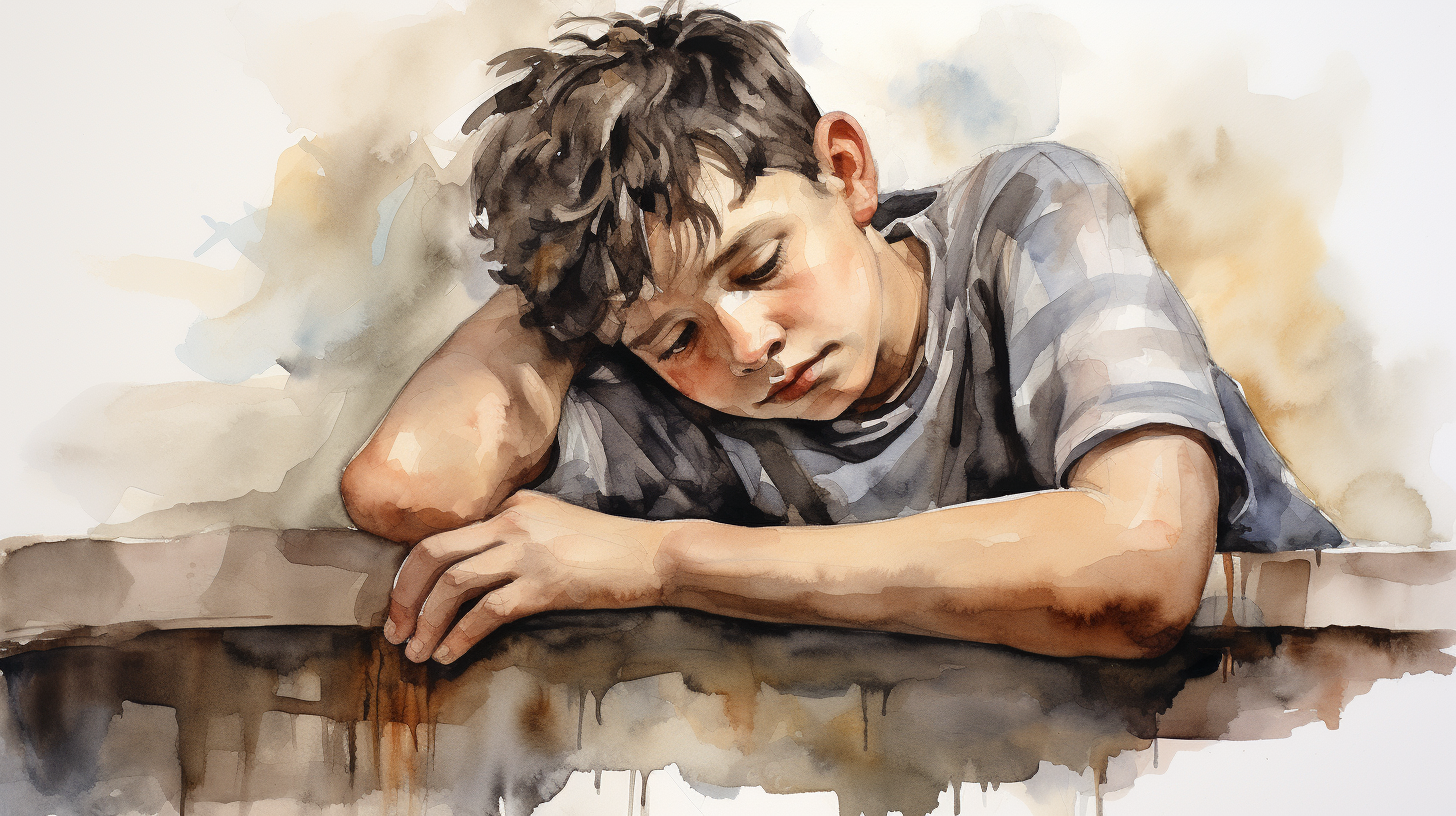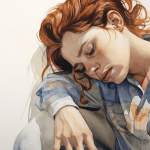What Does It Mean to Dream About Depression? Exploring the Deeper Meaning Behind Emotional Dreams
Dreams are windows into the subconscious, often revealing hidden emotions, fears, and unresolved thoughts. One of the most emotionally intense experiences in the dream world is dreaming about depression. Whether you felt heavy, hopeless, or emotionally numb in your sleep, this kind of dream can be unsettling and even disturbing upon waking. But what does it mean to dream about being depressed — and should you be concerned?
In this article, we’ll explore the possible interpretations of depression dreams, the emotional and psychological roots behind them, and what your subconscious might be trying to tell you. We’ll also look at how these dreams could be linked to your waking life, and how to interpret them with care and insight.
Why Do We Dream About Depression?
Dreaming about depression doesn’t necessarily mean you are clinically depressed in real life, but it often points to unresolved emotional distress, internal conflicts, or a deep sense of dissatisfaction. These dreams typically arise during periods of stress, transition, or emotional suppression.
The mind uses symbolic imagery and emotions in dreams to help process difficult experiences and unspoken feelings. A dream involving depression may therefore be your subconscious’s way of prompting you to slow down, reflect, or seek support.
Common Themes in Depression Dreams
1. Feeling Trapped or Helpless
Many people who dream of depression describe feeling stuck or unable to move forward. This could reflect a real-life situation where you feel powerless — whether in your career, relationships, or personal growth. The dream may be asking you to recognise areas where change or release is needed.
2. Emotional Numbness or Isolation
If your dream features emotional numbness, loneliness, or disconnection from others, it might be pointing to feelings of emotional detachment or alienation in waking life. This could stem from unresolved grief, burnout, or a sense of being misunderstood.
3. Crying or Deep Sadness
Crying in dreams is often seen as a healthy emotional release. If you cry in your dream about depression, it may be your subconscious offering a safe space to let go of pain or sorrow that you may not have expressed during the day.
4. Dark or Grey Imagery
Visual elements in dreams about depression — such as cloudy skies, empty rooms, or dim lighting — may reflect emotional fog or inner uncertainty. These images are often symbolic of the emotional weight you’re carrying.
Psychological Interpretation of Depression Dreams
From a psychological perspective, dreams about depression may be your mind’s attempt to bring attention to emotional areas you’re avoiding. Carl Jung, the famous psychologist, believed that the unconscious uses dreams to guide us towards individuation — the process of becoming whole.
In this context, a dream about depression could be a signal that a part of you needs healing, reintegration, or expression. Ignoring these emotional cues may lead to further inner conflict, whereas acknowledging them can be the first step toward emotional clarity.
Are Depression Dreams a Warning Sign?
While depression dreams can be distressing, they aren’t necessarily a sign that something is wrong — but they do deserve attention. If the dream resonates with how you’ve been feeling lately, it may be a gentle push from your subconscious to reflect more deeply on your emotional health.
It’s worth noting that recurring dreams about sadness, despair, or emptiness might indicate an emotional imbalance or suppressed feelings in waking life. In such cases, it could be helpful to talk with a mental health professional, especially if the emotions from your dream linger after waking.
Spiritual or Symbolic Meaning of Depression Dreams
In spiritual or symbolic interpretations, depression in dreams may suggest a period of transformation. Just as winter precedes spring, emotional darkness in a dream might symbolise a necessary phase before rebirth, renewal, or growth.
Some interpretations also link depression dreams to the shadow self — the hidden or repressed parts of ourselves that we often try to avoid. Encountering emotional heaviness in a dream may be an invitation to explore these parts of yourself with compassion and curiosity.
What to Do After Dreaming About Depression
Here are a few steps you can take to better understand and process your dream:
- Reflect on Your Emotions: What were you feeling during the dream? Were there moments of lightness or was the entire experience heavy? Noting these details can reveal key insights.
- Journal Your Thoughts: Writing down your dream shortly after waking can help you make connections to your current emotional state. Include any symbols, people, or situations that stood out.
- Explore Possible Stressors: Are you overwhelmed at work? Feeling unfulfilled in a relationship? Your dream might be highlighting something you’ve been avoiding during waking hours.
- Take Action Towards Self-Care: Depression dreams often signal the need for rest, introspection, and care. Make time for mindfulness, supportive relationships, or creative outlets that nourish your emotional well-being.
- Seek Support if Needed: If the dream stirs up strong or persistent feelings of sadness, consider speaking with a therapist or counsellor. Dreams can be powerful, but they are not a diagnosis — they are a call for awareness.
Final Thoughts
Dreaming about depression can be an emotionally intense experience, but it’s often the mind’s way of processing buried feelings and unresolved emotional tension. These dreams offer an opportunity to pause, look inward, and consider what parts of your life need greater attention, care, or change.
Rather than viewing the dream as negative, consider it a form of emotional intelligence — a signal from within that something deserves your heart’s attention. When explored with openness and curiosity, dreams about depression can lead to healing, insight, and a renewed sense of balance.



